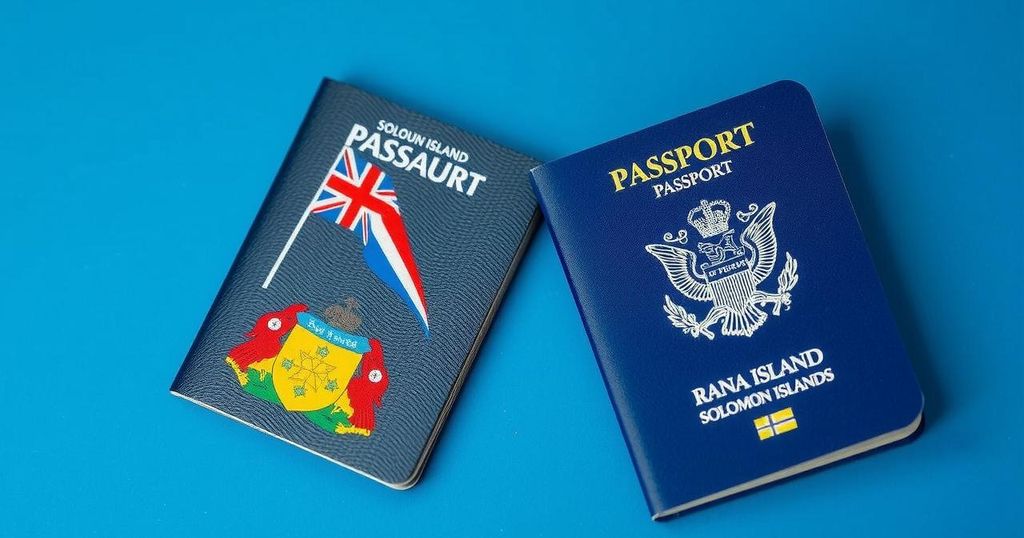economics
AS, ASIA, AZERBAIJAN, BAKU, CBI, CUNHA, CYBERSECURITY, ECONOMICS, EU, EUROPE, EUROPEAN, EUROPEAN PARLIAMENT, EUROPEAN UNION, GOVERNMENT POLICY, MELANE, NATIONAL SECURITY, OCEANIA, PAULO CUNHA, POLICY, REGULATIONS, REPUBLIC OF VANUATU, RES, TESS NEWTON CAIN, UN, VANUATU
Isaac Bennett
0 Comments
Consequences of Citizenship by Investment: Lessons for Nauru and Solomon Islands from Vanuatu’s EU Reprimand
Vanuatu was recently stripped of its visa-free access to the EU’s Schengen area due to failures in its citizenship by investment program, which lacked proper vetting. As a result, Solomon Islands and Nauru are contemplating similar CBI schemes to boost revenue, but they must heed Vanuatu’s lessons to avoid significant governance and reputational issues. Vanuatu serves as a cautionary tale illustrating the risks of commodifying citizenship without robust regulatory frameworks.
In early October 2023, Vanuatu faced significant consequences following a decisive vote by the European Parliament that revoked its visa-free access to the Schengen area, marking it as the first country to endure such punitive action. This outcome was attributed to Vanuatu’s controversial citizenship by investment (CBI) program, which the EU deemed inadequate due to lax vetting protocols, thus presenting a serious security risk. The lack of rigorous background checks on citizenship applicants led EU rapporteur Paulo Cunha to criticize Vanuatu for selling citizenship and breaching the EU’s trust.
Contrastingly, the prospect of CBI programs is enticing to neighboring countries like Solomon Islands and Nauru, both of which are exploring similar initiatives. The Solomon Islands government has drafted a CBI bill, promoting the benefits of visa-free travel to Europe that could accompany such a program. Meanwhile, Nauru’s Minister for Climate Change revealed at the COP 29 summit its plans to initiate a CBI scheme as a means to secure vital climate finance, presenting a swift application process for a cost around $140,000.
Despite the potential for increased revenue through these programs, Vanuatu’s experience serves as a stark warning. During its peak, revenues from the CBI scheme significantly bolstered Vanuatu’s economy; however, this financial boost was not sustainable, eventually leading to the EU’s actions against it. This deterioration has broader implications not only for Vanuatu but potentially for Solomon Islands and Nauru as they consider venturing into similar waters. Indigenous populations in Vanuatu, many of whom remember past statelessness, expressed deep concern over the commodification of citizenship, reflecting broader societal tensions regarding national identity.
Moreover, the operational complexities inherent in administering successful CBI schemes necessitate a combination of specialized resources and robust infrastructure, an area where Vanuatu faltered. To avoid similar pitfalls, prospective countries should engage competent private sector partners to navigate these intricate systems. As they weigh the potential benefits of CBI initiatives against the lessons from Vanuatu, both Solomon Islands and Nauru must thoroughly assess their governance capabilities to mitigate risks and uphold national integrity.
The article discusses the repercussions faced by Vanuatu following its withdrawal of visa-free access to the European Union’s Schengen area due to the inadequacies of its citizenship by investment (CBI) program. The EU’s concerns centered around security risks posed by insufficient background checks on applicants. Subsequently, neighboring nations Solomon Islands and Nauru are considering similar CBI initiatives as a source of revenue, but Vanuatu’s experience serves as a cautionary tale about potential governance and reputational risks associated with such programs.
The revocation of Vanuatu’s visa-free access underscores the critical need for rigorous oversight in citizenship by investment schemes. Solomon Islands and Nauru must learn from Vanuatu’s missteps, ensuring that their proposed CBI programs prioritize specialized governance and security measures. The preservation of national integrity and trust with international partners hinges on the successful implementation of these programs. Both nations must engage expert resources to navigate the complexities of CBI initiatives, thereby avoiding the pitfalls that have led to Vanuatu’s diminished standing in the international community.
Original Source: www.rnz.co.nz




Post Comment